February 2017
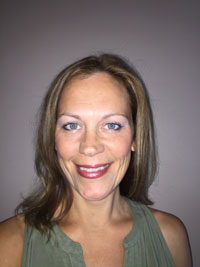
Angela Goebel
WSCA Assistant Board Chair Message: Board Directors Candidate Slate
By Angela Goebel, WSCA Assistant Board Chair
The WSCA 2017 Annual Conference is in a few weeks. We look forward to your registration and attendance. Your enthusiasm and passion to learn while at the conference sparks an energy in all of us. We welcome it and look to enveloping ourselves in it to continue our commitment to the profession.
Our conference committee, coordinators and board directors have been working hard to create another successful conference. Our keynote speakers and our sectional presenters are preparing to deliver content that feeds your passion and enthusiasm. And we will be looking to you to continue our work with WSCA. We are always looking for people to join our committees and coordinator teams. While at the WSCA Conference, we will also be looking to you to vote for our slate of Board Directors candidates.
Our WSCA membership will vote for the slate of new Board Directors candidates with a ‘yes’ or ‘no’ vote. If the membership votes are 85% for “yes”, the election for our three new Board Directors will be complete. New Board Directors represent Wisconsin School Counselors for a three year term.
Please take a moment to review the slate of Board Director candidates. Also, please feel free to review the board of directors position description in order to better understand the roles and responsibilities. Additionally, to build understanding of the WSCA Board focus, please review the WSCA ENDS Policies. Again, we look forward to your energy at the WSCA Annual Conference and your participation in elections.
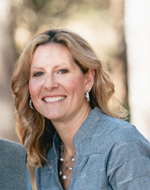
Alissa Darin
Alissa has been a school counselor for over 10 years. As a Nationally Board Certified school counselor with experience as the PK-12 school counselor lead in the Kettle Moraine School District, she brings knowledge of ACP, mental health initiatives and educator effectiveness to the WSCA board. Her co-worker describes her as one of the most confident, knowledgeable and humble leaders that she knows. Her knowledge of community resources through her work as AODA coordinator as well as RTI problem solving process will be an asset to counselors throughout the state.
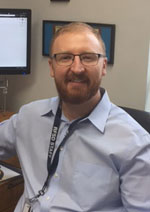 Olin Morrison
Olin Morrison
Olin is interested in serving for a second term of service on the WSCA board due to a deep sense of devotion to the work being done for stakeholders across Wisconsin. His principal describes him as a servant, educational and person-centered leader. Serving in 3 different roles over the past 5 years, Olin brings with him knowledge of policy governance in the continued leadership role. Finally, Olin has experience at both the elementary and middle school levels, which enables him to assist counselors throughout these important developmental time periods.
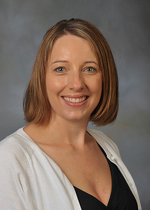 Laura Multer
Laura Multer
Laura has spent the majority of her 16-year career as the sole counselor in a 4K-8 school in the Kohler school district. Her belief that all students can achieve school success is evident in her work with students, teachers, and parents. For example, she serves as the PBIS internal coach and provides parent classes on resiliency, self-regulation and understanding the teenage years all while working diligently on the academic and career planning process. Her numerous awards, including the Kohler School District Teacher of the Year, are indicative of her commitment to the field of education.
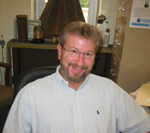
Gregg Curtis, PhD
DPI School Counseling Updates: Winter 2017
By Gregg Curtis, PhD., DPI School Counseling Consultant
Since its creation in 2007, the Wisconsin Comprehensive School Counseling Model (WCSCM) has provided school counselors with specific student developmental standards and a model of effective practice. Replacing the Wisconsin Developmental Guidance Model, the WCSCM was based on the tenets and standards contained in the American School Counselor Association (ASCA) National Model. With the publication of the revised ASCA National Model (3rd ed.) in 2012 and the release of the ASCA Mindsets and Behaviors: K-12 College- and Career-Readiness Standards for Every Student in 2014, our state model and standards began becoming outdated.
Over the course of the last two years, I have collected data from the field regarding what to do about the future of the WCSCM. The overwhelming majority of practitioners indicated a desire to adopt the ASCA National Model (3rd ed.) as our profession’s method of delivery of a comprehensive school counseling program. In addition, school counseling professionals across the state suggested the adoption of the ASCA Mindsets and Behaviors was an appropriate way to update our student standards.
To this end, DPI has begun the work of “retiring” the WCSCM and current standards. WSCA fully supports this work and will be integral in the planning and delivery of communication materials and professional development that will occur concurrently with the DPI work.
As you think about this impact on your work, the connections between your current practice/curriculum/programming and the student standards, and the professional development you have received in the past (Level 1, 2, 2a, 3), please believe that every effort will be made to connect all of the investments you’ve made in your work thus far to the new model of practice and standards. As an initial tool to assist in the translation of your current program standards connections to the ASCA Mindsets and Behaviors, a crosswalk has been created. Use this http://dpi.wi.gov/sites/default/files/imce/sspw/pdf/scstandardscrosswalk.pdf to update your program’s standards to the Mindsets and Behaviors.
You can learn more about this transition at a session at the 2017 WSCA Conference:
- The DPI’s Suicide Prevention Curriculum is newly updated and available for download for free on the webpage linked here: http://dpi.wi.gov/sspw/mental-health/youth-suicide-prevention/student-programs/curriculum.
- Prevent Suicide Wisconsin Conference will take place on April 19th at the Kalahari in Wisconsin Dells, WI. There will be a specific “School-based Suicide Prevention” track for educators. For registration and further information go to: http://www.preventsuicidewi.org/2017-psw-conference.
- The 2015 statewide Wisconsin Youth Risk Behavior Survey was conducted with randomly selected schools through May 2015. Despite our best recruitment efforts, not enough selected schools participated to allow weighted data to be collected; and we do not have a 2015 state comparison. Please continue to use the weighed 2013 data until the 2017 survey is completed. In order to get weighted data for 2017, we are actively recruiting schools in the CDC-selected sample with a winter/spring 2017 completion in the schools. If your school was selected, please participate and help us get statewide weighted data!
- Working with students’ academic, social/emotional, and career development includes supporting them with physical health issues; including alcohol, tobacco and other drug usage. As your school district updates its tobacco policy, encourage administrators to use the newly compiled checklist aligned with the E-cigarette sample school policy language from the Public Health Law Center available on DPI’s Tobacco Prevention website at: http://dpi.wi.gov/sspw/aoda/tobacco-program. If your school district has updated your tobacco policy with this new language, notify Brenda Jennings at brenda.jennings@dpi.wi.gov, and we will add it to our list of school districts on our website.
- Following a successful ACP Leadership Conference in December, there are continuing DPI internal workgroup meetings for Academic and Career Planning (ACP). Keep up-to-date with new information and resources on the DPI ACP website dedicated to the implementation of ACP’s at: http://dpi.wi.gov/acp. In addition, the 2017 WSCA Conference will include morning and afternoon pre-conference workshops dedicated to increasing counselors’ ACP knowledge and implementation toolbox. See the descriptions for these sessions on the 2017 WSCA Conference website: http://www.wscaweb.org/conferences/2017-conference/pre-conference-workshops.
- GSAFE and Mental Health America of Wisconsin partnered to produce the new resource for middle and high school educators, Best Practices for Supporting LGBTQ+ Students as They Return to School. Please consider sharing this in love, respect, encouragement, support, and appreciation with educators that you know, including out-of-school and after school workers! Please see attached, or follow the link above or here: http://www.gsafewi.org/resources/for-educators/best-practices-for-supporting-lgbtq-youth-as-they-return-to-school/.
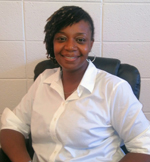
Wanda Melton
Topic of the Month: Mindfulness
Mindfulness Interventions in Schools
By Wanda Melton, School Counselor, Northwest Catholic School
This is a sample of what students listen to and practice every day at Northwest Catholic School (NWCS) in Milwaukee.
“Rest a minute in your still quiet place. Do you know where your still, quiet place is? Let us show you. It’s like a treasure hunt and the most wonderful thing is that the map and the treasure are inside of you. So if you want to discover the treasure inside of you, sit tall, close your eyes, relax and follow these instructions. Put your hand on your belly, see if you can feel your belly expanding like a balloon when you breathe in, and shrinking like a balloon when you breathe out. Feel your belly filling with each in-breath and emptying with each out-breath.” (Saltzman, 2007)
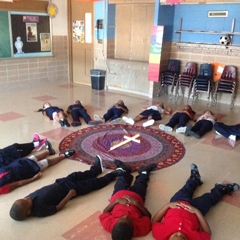 Schools across America are taking a closer look at mindfulness and the affects it can have in the classroom. Northwest Catholic School, a Choice school in Milwaukee, has also taken a closer look at the benefits of mindfulness. Guided meditations and other mindfulness interventions were not always a part of the school’s routine. It was incorporated in 2015, after receiving a grant through the Charles E. Kubly Foundation. The purpose of the grant was to expand on the school’s “trauma sensitive school” initiative. A “trauma sensitive school,“ which we now refer to as a Responsive School, teaches students social and emotional skills along with academic lessons. Responsive School practices provide teachers with an understanding of student needs, and tools they can use to support and teach those who have been affected by trauma. Two ambitious professors from Mount Mary University, Dr. Carrie King and Dr. Tammy Scheidegger saw a need for this research and created a program that we have adopted at our school.
Schools across America are taking a closer look at mindfulness and the affects it can have in the classroom. Northwest Catholic School, a Choice school in Milwaukee, has also taken a closer look at the benefits of mindfulness. Guided meditations and other mindfulness interventions were not always a part of the school’s routine. It was incorporated in 2015, after receiving a grant through the Charles E. Kubly Foundation. The purpose of the grant was to expand on the school’s “trauma sensitive school” initiative. A “trauma sensitive school,“ which we now refer to as a Responsive School, teaches students social and emotional skills along with academic lessons. Responsive School practices provide teachers with an understanding of student needs, and tools they can use to support and teach those who have been affected by trauma. Two ambitious professors from Mount Mary University, Dr. Carrie King and Dr. Tammy Scheidegger saw a need for this research and created a program that we have adopted at our school.
web.jpg) Before any implementation could take place, the teachers took part in an intense Responsive School training. This training occurred throughout the school year with hands-on support. Teachers not only had to recognize how trauma presented itself in students, but also understand trauma and how it relates to a stressed brain. The body and the brain respond to stress by producing complex set of hormones and neurotransmitters. When a child’s senses perceive danger, their hypothalamic-pituitary-adrenal (HPA) system releases steroid hormones. The HPA system will keep a child’s body stimulated and ready to run. This may be good for life or death situations, however, when there is no actual threat, this stress response makes learning difficult (Levy, 2014).
Before any implementation could take place, the teachers took part in an intense Responsive School training. This training occurred throughout the school year with hands-on support. Teachers not only had to recognize how trauma presented itself in students, but also understand trauma and how it relates to a stressed brain. The body and the brain respond to stress by producing complex set of hormones and neurotransmitters. When a child’s senses perceive danger, their hypothalamic-pituitary-adrenal (HPA) system releases steroid hormones. The HPA system will keep a child’s body stimulated and ready to run. This may be good for life or death situations, however, when there is no actual threat, this stress response makes learning difficult (Levy, 2014).
Research shows that the benefits of yoga, meditation and other mindfulness interventions lowers stress, eases anxiety, improves sleep, wards off sickness and reduces depressive symptoms and pain.
According to the National Child Traumatic Stress Network, up to 20% of kids in the U.S. have anxiety, and it is known to be the #1 predictor of depression in adolescence. The NCTSN also reports that 1 out of 4 children are exposed to traumatic events by the age of four. It is not always clear to teachers and counselors which children may have suffered from trauma, although student behavior can point to potential trauma reactions (Levy, 2014).
Trauma reactions can be seen in students as angry outbursts, depressive symptoms, anxiety, behavioral changes, academic problems and nightmares. The purpose of implementing mindfulness curriculum and interventions in schools is to promote self-regulation and deepen students’ understanding and awareness of their own mental process. NWCS began to see growth after implementing several strategies. Some of these strategies included:
- Responsive Schools Training – an all-staff training that is focused on how trauma affects learning, conditions in which trauma is most prevalent, and effective ways to respond to trauma reactions.
- Educating parents about the effects of trauma in children
- Using The MindUp curriculum – a brain based curriculum for classroom lessons
- Using sensory/calming bottles – plastic bottle filled with water and glitter that is used to help calm students when their stress system is activated
- Meditation and yoga – guided meditation, various strengthening yoga poses and deep breathing activities
- Drumming community circles – drumming activities that creates unity among students and teachers
- Morning meetings – teachers and students building community in a circle or group discussion
- Therapy dog – therapy dogs working with students who show significant effects from trauma
- HeartMath – a biofeedback program with various activities that monitors stress levels and focuses on deep breathing and positive thoughts to reduce stress
- Diffusers – various essential oils that are shown to reduce stress and have calming effects
As a result of implementing these new practices, the school saw office referrals reduced by 79% and incidents of classroom disruption and defiance reduced by 80% for K4-4th grade. For grades 5th-8th , student office visits for disruptive and defiant behavior was reduced by 65%, dropping from an average of 22.4 to 8 office visits a day. Also in grades 5th-8th, the number of physical altercations was reduced by 60% and there was more than a 50% reduction in defiance towards teachers.
The Responsive Schools program is showing a significant reduction in behavior office referrals and physical altercations, while also increasing positive connections in student-teacher relationships. Having these interventions in place has been a blessing for our school.
Levy, L. (2014, October 13) How stress affects the brain during learning. Retrieved September 25, 2016, from http://www.edudemic.com/stress-affects-brain-learning/
Saltzman, Ph.D, Amy (2007). The Still Quiet Place. CD available at Amazon.
National Child Traumatic Stress Website: http://www.nctsn.org/resources/topics/facts-and-figures
The MindUp Curriculum: http://teacher.scholastic.com/products/mindup/
Incorporating Mindfulness into the Classroom: a Personal “How-to”
By Elina Kats, School Counselor, University School of Milwaukee
I sat down to write this article on how to implement mindfulness practices into the counselor’s classroom lessons and within the scope of a comprehensive school counseling model several times. Every time, I walked away with a half finished piece, intimidated by the notion. There are many articles written on the positive benefits of incorporating mindfulness-based training into the educational environment—one of them is in this very newsletter. So on this latest try my idea is to write a how-to guide based solely on my experience. This will hopefully make my task more manageable and potentially more useful for a counselor out there who is just considering the possibilities of mindfulness and its place in school counseling programs.
Step One: Getting acquainted.
For the last three and a half years I worked as an elementary counselor in the Mukwonago School District. I served three K-6 schools, whose population totaled over 1,100 students. I taught in all the classrooms, every other week and saw all the students all year long that way. I came across the idea of mindfulness at a “Mental Health in Education” conference during the fall of 2014. Luster Learning Institute’s Calm Classroom out of Chicago did a presentation at the conference and their programming intrigued me. I became interested in the possibility of bringing skills of self-awareness, emotional regulation, and purposeful attending to students school-wide, not just individual or small groups of students referred by teachers and parents. Mindful practices can enhance the skill “toolbox” of any student, no matter where they are in their developmental, academic, and personal journey in life.
Step Two: Gathering information and collaborators.
I read several articles on mindfulness in education and its potential during the spring of 2015. I also had a few informal conversations with teachers, who seemed interested and had already incorporated some related practices into their classrooms. After several teachers and staff showed interest in learning more, I organized a book study centered on Mindful Teaching and Teaching Mindfulness: A Guide for Anyone Who Teaches Anything by Deborah Schoeberlein David. I read a few other books (list of resources is at the end of this article) and perused through the MindUp curriculum as well. I felt overwhelmed by the amount of information, but also very excited by the possibilities.
I decided to start that fall by introducing short “Drop In” practices at the beginning of every classroom lesson. I also approached the smallest of my three schools, which is also multi-age and a charter school within the district with the possibility of using the MindUp curriculum developed by the Hawn Foundation as the main curriculum for their lessons that school year. The teachers were excited and came on-board, and two of them paralleled my instruction with classroom practices throughout that year.
Step Three: Implementing while learning.
I introduced the idea of mindful practices in all of the classrooms during the very first lesson that fall using developmentally appropriate descriptors and hooks. During the introduction, I used experiential learning right away—we did mindful listening for one full minute and then paid attention to our breathing for another minute more to get an idea of what it feels like to focus on one part of our experience in the present moment. After the first lesson, I started all the classroom lessons with a brief “Drop In” practice. These practices varied from teacher-led to guided recordings to student-led to brief videos on GoNoodle or Calm Classroom Youtube channel. I modified and experimented as I learned on my own and based on the students’ feedback.
The main thing I learned is that I needed to be practicing mindfulness on my own in order to understand the experience and the learning process. This simple principle of teaching what you know came through experience but also from taking the Mindfulness Fundamentals online course from Mindful Schools. The course was essential in helping me get more in-depth understanding of what mindfulness is and to start my own practice, which has been as beneficial to me personally as it has professionally.
In the Spring of 2016, I also took Mindful School’s online course called, Educator Essentials, which gave me access to their curriculum and guided and refined my teaching of mindfulness to students and the skills in presenting on mindfulness to faculty, administration, and parents.
Step Four: Gathering data and feedback.
As part of the mindful practices during the 2015-16 school year, I incorporated reflection journals in grades 3 through 6. I read the journal entries twice during that year from all the students. Their individual brief reflections, which they jotted down after each practice, gave me essential feedback for refinement of practices and also the data to share with the staff on students’ reception of mindfulness in the classroom. The students in grades 4-6 (around 500 of them) also took a survey at the end of the school year, which I adapted from Mindful Schools’ materials. Overwhelmingly, the students’ receptions and perceptions of the benefits of mindfulness and the practices themselves were positive. I presented this information to the staff at the end of the 2015-16 school year with the hopes of igniting some excitement about using mindful practices in their classrooms as part of a regular routine.
Step Five: Onwards and forwards.
At the start of the 2016-17 school year, several teachers started with regular classroom mindful practices. All the resources they tapped are presented at the end of this article. I continued with brief “Drop Ins” at the start of my classroom lessons, but omitted the reflection journals due to the amount of time they took away from the short thirty minutes I get every other week with the students not because they lacked utility. In fact, I feel the journals are a great way of deepening students’ engagement with the practices and their individual experiences. In the future, I see myself using them in certain grades as part of regular practice.
Unfortunately, halfway through the year I changed positions and districts. The counselor that was hired in my place does have experience with mindfulness though, and she will continue with the “Drop Ins” and supporting the staff that would like to come along on this journey. In my new position, I will continue using mindfulness in individual and small group counseling as I have over the last two years. I am also hoping to incorporate the various curriculums at my disposal into the current advising programming and to support individual teachers who may be interested in mindfulness as a resource to enhance students’ attention skills, emotional and self-awareness, and reduce stress and anxiety in their regular classrooms.
Books (I can vouch for):
Kabat-Zinn, Jon (2005). Wherever You Go, There You Are. New York, NY: Hachette Book Group.
Rechtschaffen, Daniel (2014). The Way of Mindful Education: Cultivating Well-being in Teachers and Students. New York, NY: Norton & Co, Inc.
Snel, Eline (2013). Sitting Still Like a Frog: Mindfulness Exercise for Kids (and their Parents). Boston, MA: Shambhala Publications.
Schoeberlein David, Deborah (2009). Mindful Teaching and Teaching Mindfulness: A Guide for Anyone who Teaches Anything. Somerville, MA: Wisdom Publications.
Srinivasan, Meena (2010). Teach, Breathe, Learn: Mindfulness in and out of the Classroom. Berkley, CA: Parallax Press.
Resources for the Classroom that I and other teachers have used:
Mind Yeti by Committee for Children
Zen Den: Mindfulness playlist by Cosmic Kids Yoga
GoNoOdle: Flow, Empower Tools, Think About It, and Airtime channels and series.
Calm Classroom: Guided practices available for purchase and Sixty Seconds Series
MindUp Curriculum by The Hawn Foundation
Organizations working on Mindfulness in Education:
Growing Minds—a Milwaukee-based organization that provides training for teachers and schools.
Mindful Schools—based in Oakland, CA: online training for school staff and lots of resources in both academic research and practical strategies.
Center for Healthy Minds at UW—Madison researchers study the neurological basis for benefits of mindfulness and meditation.

Wanda Melton
Director Spotlight
Wanda Melton, WSCA Director
While attending graduate school at Mount Mary University in Milwaukee, I received an “aha” moment. That moment happened after having to present a poster board at one of the WSCA conferences for the School Counseling program. As an introvert, it was a challenge for me to face other professionals and present my research to them. I was very passionate about my topic, “Closing the Achievement Gap” and presented with confidence. I received the satisfaction of leaving my audience with knowledge about my topic. The fire was lit at that very moment. I wanted more of that feeling and to challenge myself to grow as a school counselor. That was also my reason for wanting to get involved with WSCA. To be around other professionals who have the same purpose and goals as myself empowered me. For the last 3 years, I have held a position as a school counselor at Northwest Catholic School, a private school in Milwaukee. The school serves about 270 students from grades 4K-8, but I particularly work with grades 4K-4 at the lower campus. Although all grade levels have their challenges, working with the younger ages has been most rewarding. I like to think of it as a prevention investment into our students and equipping them with the tools they need to succeed.
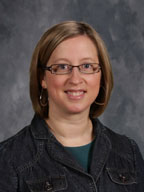
Erika Spear
Staff Spotlight
Erika Spear, Membership Coordinator
Hi! My name is Erika Spear and I am the Membership Coordinator. I am in my fourth year as the 8-12 School Counselor for the Almond-Bancroft School District. Prior to working as a School Counselor, I worked in Human Resources for a software company in Charleston, SC and taught English in Japan. Through my work experiences, I have had the benefit of working with some fantastic people that have encouraged me to take every opportunity to network with peers/colleagues and attend professional development workshops and conferences. I am a firm believer in the importance of lifelong learning and I love what WSCA has to offer the School Counselors of WI!
I’m just starting my third year in the Membership Coordinator role and I am very excited to have the opportunity to connect with other counselors. My goal for the Membership Committee is to increase the engagement of all of our members right from the start! Professional development and networking with our peers is so important to this profession, and I want to make sure that we are providing support to our fellow counselors!
Some of the responsibilities of the Membership Committee are:
- Annual School Counseling Needs Survey;
- Network with members at Professional Development Opportunities;
- Engage with new members, current members, non-renewing members, and other school counselors in the state;
- Member Recruitment Drives.
If you are interested in joining the Membership Committee, please contact me at wscamembershipchair@gmail.com!
Committee Updates & Upcoming Events
Professional Development
Plan to Attend WSCA’s 11th Annual Summer Leadership Academy
Topics: ASCA National Model Implementation and Academic and Career Planning (ACP’s).
When: Tuesday, July 25th, 2017, 9:00 – 4:00 pm
Where: Stevens Point, WI
Click here for more information
Government Affairs
Afternoon on the Hill – Tuesday, February 21, 2017 1:30 – 4:30 pm
A FREE WSCA PRE-CONFERENCE SECTIONAL
- Are you making a difference in the lives of students and families?
- Are you passionate and knowledgeable about school counseling issues?
- Are you involved with college and career readiness and Academic and Career Plans?
- Do you believe school counselors are a critical need in educating children?
Then help share this important message with legislators who make decisions about education!
When constituents talk, legislators listen…
The time to register for Afternoon on the Hill (AOH) is now!
- To sign up to participate in AOH during pre-conference and for the WSCA conference, click here
- You need to be a member and login using your WSCA login and password to register online
- Those preferring a paper registration form (and nonmembers) click here
Agenda for Afternoon on the Hill:
- Overview of hot topics in education by WSCA representatives
- Detailed information to help your legislative visit go smoothly, including time and location of appointment
- Handouts distributed to guide your discussions and to leave with legislators
- Planning time
- To partner up and collaborate with other participants meeting with the same legislator
- To prepare for the meeting and get questions answered
- Participants take a beautiful walk to the Capitol together
- A room is assigned at the Capitol for participants to prepare and debrief
- Apres-legislative gathering at a local watering hole (Debrief and enjoy a beverage compliments of WSCA Government Relations Committee)
WE NEED YOU TO BE THE VOICE OF SCHOOL COUNSELORS! PLEASE JOIN US!
Questions or Comments? Please contact the Government Relations Co-Coordinators:
Andrea Donegan Nate Rice
adonegan@basd.k12.wi.us nrice@wi.rr.com or 262-893-3880
Membership Update
WSCA would like your ideas regarding the needs of School Counselors in Wisconsin and enhancing WSCA membership benefits.
Please complete our WSCA Counseling Needs Survey to share your thoughts. Your responses provide direction in the planning of our professional development programming, as well as focus for our state organization.
The survey should take less than 15 minutes and your responses will be reviewed by the WSCA Governing Board to assist in developing our goals and initiatives. In appreciation for your time, please enter the drawing for a $25 Amazon.com gift card at the end of the survey. The survey closes on Thursday, February 23, 2017 at 10:30am. Gift card winners will be announced at the Annual Conference President’s Brunch.
To access the survey follow this link: https://www.surveymonkey.com/r/YHJ6VSD
Please contact Erika Spear (wscamembershipchair@gmail.com) if you have any questions regarding our annual member survey
Professional Recognition and Scholarship Update
WSCA is proud to announce our continued partnership with: Educators Credit Union! We are thrilled to partner with ECU and want to spread awareness about their incredibly generous scholarship opportunity for high school seniors, read on for more info!
Educators Credit Union awards twenty-five $2,000 scholarships, based on a student’s academic record, participation in school and/or community activities, and demonstration of one or more of the core values of Educators Credit Union, which are respect, integrity, community, passion, and stewardship.
The completed scholarship application is due by February 27, 2017 and can be found at https://www.ecu.com/community/student-scholarships/ecu-scholarships-vision-and-mission/
Questions, please contact Katie Nechodom, Professional Recognition and Scholarship Coordinator, at nechodomk@gmail.com
Publications Update
March WSCAlink: Motivation and Success- How Counselors Support Student Achievement |
Deadline is February 10
April WSCAlink: Standing Up for the Profession- Taking it to the Hill
Deadline is March 10
May WSCAlink: Preparing to Review Your Program’s Effectiveness (Year-End Program Audit)
Deadline is April 10
In the meantime, send questions/articles to tabithastelter@gmail.com and the Editorial Board will let you know when it will be used. Don’t be afraid, be published!
Social Media Update
We now have a WSCA Conference app!
I am so excited to be the first to let you know about the free WSCA conference app, downloading instructions found here. The app will feature the conference agenda, allow you to schedule the sectionals you wish to attend, have a spot for you to take notes, help you to navigate the conference center with a map of rooms and exhibitors, give you the ability to watch our WSCA Twitter feed, and provide you with announcements throughout the conference. This is an exciting technology initiative that we hope you all take advantage of. Check out WSCA on social media for more information. In the meantime, don’t forget to register for the conference.
Still need help with technology? Put the WSCA Social Media Committee to work for you! Eric Mueller and I will be offering a half day pre-conference session titled: “Interactive Hands-On Technology Instruction for School Counselors”. This sectional is for counselors in the middle/high school setting. Have you always wanted to use more technology but were unsure where to start or how to begin the process? Come participate in this hand’s-on pre-conference workshop on the integration of technology into a comprehensive school counseling program. It doesn’t matter if you have never signed onto Google Docs before or don’t even have a Facebook Account. We will walk you through each and every process from start to finish. This experiential sectional will focus on a variety of technology including but not limited to social media (Facebook, Twitter, Remind, Instagram), Google Apps for Education, including Google Drive, Sites, Classroom and so much more. Prior to the workshop we will send out a survey for specific input on the technologies that we will spend additional time exploring and setting up for your building. What you need to participate: Patience and a device (preferably a laptop). With everyone at a different stage in the technology process this will be both group and individual instruction.
As always don’t forget to follow WSCA on Facebook (WSCA), Twitter (@WSCAcounselor), Instagram (wscasocial) and Tumblr (wscacounselor)!
Conference Update
WSCA Conference 2017
Feb. 21-23, 2017 – Monona Terrace, Madison, WI
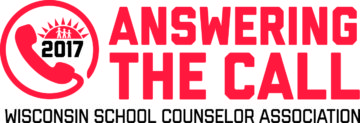
February is a great month to be a school counselor! Of course, all months have their highlights, but February is a month that allows school counselors a chance to be recognized for their professional work during the week of February 6-10, 2017, during National School Counseling Week. The WSCA Conference Committee wishes all the school counselors across the state a very happy “National School Counseling Week”!In addition to the recognition week, February also provides school counselors from across the state the amazing opportunity to participate in the Wisconsin School Counselor Association’s annual conference. By now, you’ve likely made arrangements to attend and are looking forward to three days of extensive professional development and networking.
Tips for a Successful Conference Experience:
- Determine a goal you have for the conference. Do you want to meet other school counseling professionals at your grade level? Learn a new strategy to use in your practice? Gather new ideas to bring back to your school team? Whatever it is, be sure to make these goals a focus of your conference experience.
- A little pre-planning can go a long way. Find out sectional start times, plan your parking strategies and backup plans (see free Shuttle Schedule HERE) and get an overview of sectional sessions HERE prior to your arrival at the Monona Terrace.
- Prepare for networking opportunities! Bring a supply of business cards and resources you might want to share and charge your electronic devices.
New This Year:
You’ve asked, we’ve listened. There are many new events in the works this year to help make the conference a positive experience for all.
- Start your conference out on a relaxed note by joining a free yoga class from 6:45-7:15 a.m. on Wednesday. Bring your yoga mat and start your day the namaste way!
- In an effort to provide as many sectional opportunities as possible, there will be a variety of early bird sectionals starting at 7:15 a.m. View the entire list of sectional offerings HERE.
- Conference exhibitors will be holding raffles and offering a variety of prizes at exhibit booths. Be sure to check out all of the great school counseling resources from the many exhibitors at the conference.
- Are you interested in having your professional photo taken or updated? There will be a professional photographer on site to take FREE head shots during conference.
- Stay tuned for the release of the WSCA Conference App. Be sure to download the app prior to your arrival at the Monona Terrace to take full advantage of the planning features of the app.
- In order to increase the opportunity to network and visit the many vendors available at the conference, the lunch hour on Wednesday has been extended to 1.5 hours.
- Are you a graduate student attending your first conference? Be sure to check out the opportunities to connect and meet other fellow grad students at the Grad Pad in Ballroom B.
With over 1,100 school counseling professionals attending the conference parking can be a challenge. WSCA has arranged complimentary coach shuttle service by Badger Coaches to run on Wednesday and Thursday (at the beginning and the end of each day) with pickup/drop off at the Sheraton Hotel, Holiday Inn Express, the Alliant Energy Center and the Monona Terrace. You can find the daily shuttle schedule HERE. It is recommended that you take the earliest shuttles available so you arrive on time to the daily scheduled events at Monona Terrace. Additional daily parking will be available for conference attendees at the Alliant Energy Center (parking fees apply) on Wednesday and Thursday of the conference. See more parking information HERE.
This year’s conference will be packed full of information sharing and learning opportunities. Be sure to finalize your conference plans now so you won’t miss out on these wonderful professional opportunities. We can’t wait to see you there!



